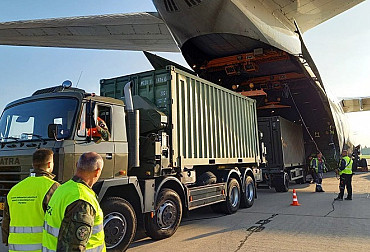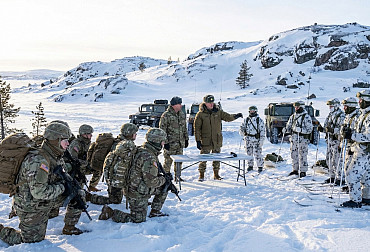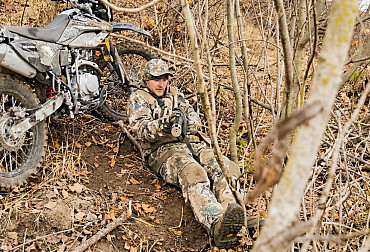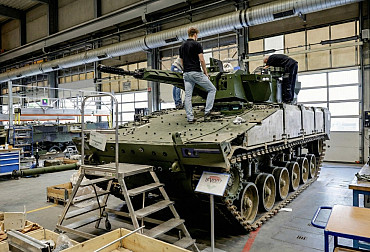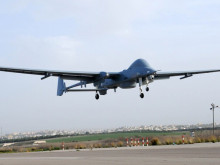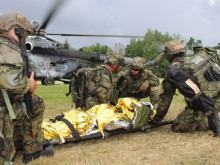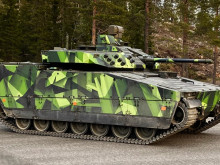International operations in the Sahel make sense and it is useful to continue them
Following the withdrawal of coalition troops from Afghanistan at the end of June this year, the deployment of Czech Army units in Mali, West Africa, is gaining in importance as part of the European Union's EUTM training mission, where currently soldiers of the 13th Artillery Regiment operate as the core of the 5th TF, or within the Takuba group, where members of the 601st Special Forces Group are deployed. The goals of both missions are common, the means are different.
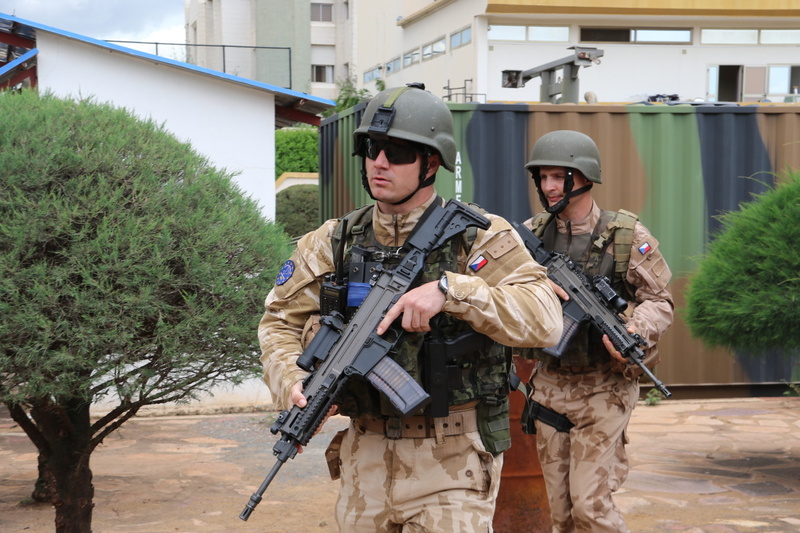 Picture: The EUTM mission is very important for the Czech Republic | Ministry of Defense of the Czech Republic
Picture: The EUTM mission is very important for the Czech Republic | Ministry of Defense of the Czech Republic
It is not uncommon to encounter a misunderstanding of the meaning of the deployment of the Czech Army troops in West Africa, on the territory of the former French colonies, in the missions of the European Union and the French Army and its allies. First of all, their official rationale and goals:
The EUTM 's mission is to "assist in the construction and training of the Malian army to be able to independently face attacks by armed terrorist groups in the future and to ensure the country's sovereignty and territorial integrity" as well as to support the construction of the G5 Sahel Joint Forces for the same primary purpose. The mission is being carried out at the request of the Government of Mali and in accordance with UN Security Council Resolution. The mission involves 120 Czech soldiers, and the Czech Republic also commanded the mission from June 2020 to January 2021.
Takuba essentially takes over the original tasks of Operation Barkhane, led by France in the Sahel and Western Sahara from 1 August 2014 to 10 June 2021. Under these operations, troops were deployed not only to support the training and construction of the domestic armed forces, but to fight directly against armed Salafist jihadist groups reporting to al-Qaeda and the Islamic State, among others, and to previous operations code-named Serval and Epervier. Operation Barkhane was marked by coups d'état in Mali, within which the Western troops maintained strict neutrality, but the latter from the end of May this year led French President Macron to end the operation and fundamentally change the operation of the armed forces - reducing their status and greater involvement of special forces. with more precise and effective action against selected targets.
While France has long been a target of very massive immigration, not least in view of its historical ties with the Sahel countries, an immigration which in turn is facilitated by the legacy of the colonial system, the spread of the French language in the region, for other European citizens the sense of the very active involvement of the armed forces in Mauritania, Mali, Burkina Faso, Niger and Chad may be somewhat veiled. It can be simply explained by three main interests, which are related.
In the first place, not necessarily in terms of priority, is the allied relationship with the French Republic. Our ally identifies a problem in the area and the Czech Republic is one of the countries that supports France in its efforts to solve the problem within the framework of allied relations in NATO and the EU. Furthermore, there is a wider interest shared by all European countries, ie to combat, as far as possible, the threats of international Islamic terrorism and, in general, violent Islamic fundamentalism, where it originates, has its background and threatens to spread without effective intervention. It is far from just the Middle East, especially Syria, Iraq, or more distant Afghanistan or Pakistan. It is West Africa that is an area that has suffered more and more from this danger in recent decades, and from where the pernicious ideology of Islamism is spreading further into the world. It is a fight against a common enemy on his own territory, which is naturally more effective and promising, and also cheaper than having to resist him later and / or to a greater extent on our own territory.
It may certainly seem like a Sisyphean task, whether it is an effort to support the construction of a domestic regular armed force with a view to taking full responsibility, or the fight against specific terrorist groups, or the liquidation of specific individuals and groups. The deployment of foreign forces can hardly bring a definitive and stable solution - however, it is an integral part of the effort to solve the problem, if not solve it, then at least to reduce its negative effects, either directly in Europe or indirectly and following the instability of the situation in the Sahel. Leaving a troubled area to its own destiny means risking the problem being projected into Europe faster and more intensely. Last but not least, it is currently practically the only place where the Army of the Czech Republic can gain experience from an operational deployment. It may sound cynical to some, and many people start to fool around with the fact that the experience gained somewhere in sub-Saharan Africa will not be applied by soldiers in our latitudes, but this is an absurd argument stemming from ignorance and naivety. International operations of this nature are not conducted in order for the armies to gain experience there, but at the same time this dimension cannot be ignored, and ultimately, when fulfilling the primary tasks, this experience is a welcome bonus. In addition, the general reasons for the existence of the Army of the Czech Republic are not based only on tasks related to the direct defense of the Czech Republic and our allies, but also from the fulfillment of international obligations arising from allied ties under agreements. In an increasingly interconnected and smaller world, risks do not only come to us across our own borders, and the direct and indirect threat to our allies is ours as well.
We asked several questions in this matter to the office of the Chief of the General Staff:
In the Sahel, according to media reports from this month, a big change in approach is probably planned. Operation Barkhane, which currently involves more than 5,000 troops from ten bases, is to replace operations with about half the force and greater use of special forces. Does this change lead to a greater readiness of the domestic forces to take over the standard, less demanding tasks performed so far by European troops?
It was officially declared by France that it would withdraw 2.5 to 3 thousand of its troops as part of the Barkhane mission. The troops will be reinforced in the region by troops of international troops, as part of the Takuba mission.
At present, the core of the 5th TF in Mali consists of soldiers of the 13th Artillery Regiment, and their primary tasks are to protect headquarters and training bases and escorts. If there is a change in approach and more intensive use of special forces, what will be their primary tasks?
Soldiers of the 13th Artillery Regiment are currently operating in Mali as part of the EUTM training mission and soldiers of the 601st Special Forces Group as part of the Takuba mission. These are two different foreign operations. Each mission has its own tasks and mandate.
In the context of this change, in addition to the 601st SFG, is the involvement of members of the new Airborne Regiment, or the 102nd Reconnaissance Battalion assumed?
The plan is to continue Operation Takuba under a mandate valid for the next two years.
Will the Czech Army continue to support the training of the Malian Army in order to take full responsibility for the security situation in the country in the future?
Yes, it is in the common interest of the European Union.
To what extent is there a different approach to the training of our and French soldiers? For France, the mentality of local soldiers is better known than for members of the Czech Army.
Simply put, the training provided by the EUTM is carried out in campsites and is primarily basic training. The training provided to the Malian units by the French mission is a follow-up training, in real activities and regions of real deployment.











